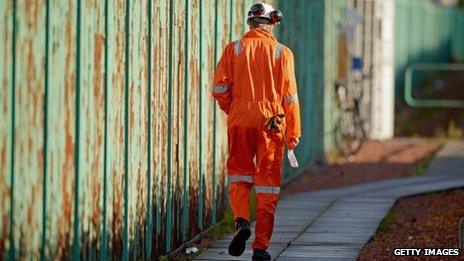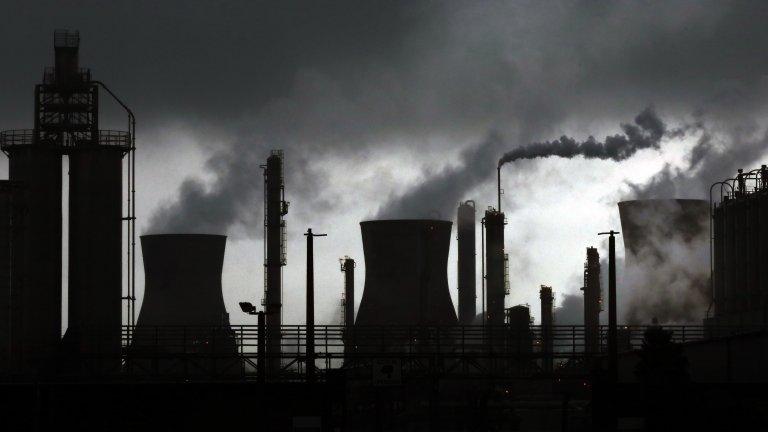Big forces on the Forth
- Published

There are big forces at work on the banks of the Firth of Forth.
One is radical change in the energy market. Grangemouth's petro-chemical plant has fed off North Sea gas, which is depleting.
It needed to re-equip to import gas, shipped across the Atlantic at much lower prices. America's shale boom is up-ending the energy market.
The new investment that was needed to revive this ageing plant came with a demand from its owner. Based in Switzerland for tax purposes, Ineos wanted payroll costs to fall sharply if Grangemouth was to compete.
That's another big force at work: in a dispute with an air of oddly old-fashioned confrontation about it, we've seen the power of global capital set against the power of workers, and winning.
Another refined mess
Then there's the neighbouring refinery. The man who controls Ineos, Jim Ratcliffe, said at the weekend; the closure of the petro-chemical plant would be likely to lead to the demise of the refinery.
There's over-capacity in refining worldwide. Old European plants produce too much petrol, not enough diesel, and they struggle to compete against cheap US output, and giant new complexes in the Middle East and Asia.
As the world order changes, this dispute and closure have brought into sharp focus the question of whether any government - whether that of the United Kingdom or an independent Scotland - could resist these changes.
And also, is there a case for protecting energy production as a matter of national interest?
Stand by for a review of refinery provision by the Department for Energy and Climate Change, which Ed Davey says is due by the end of this year.
- Published16 October 2013
